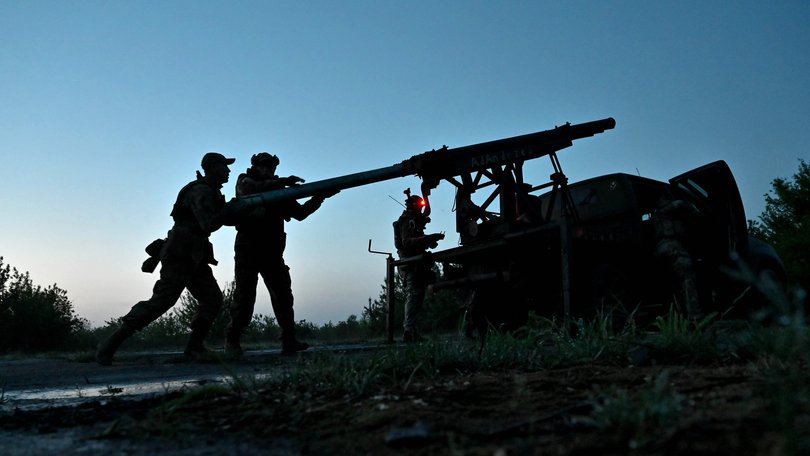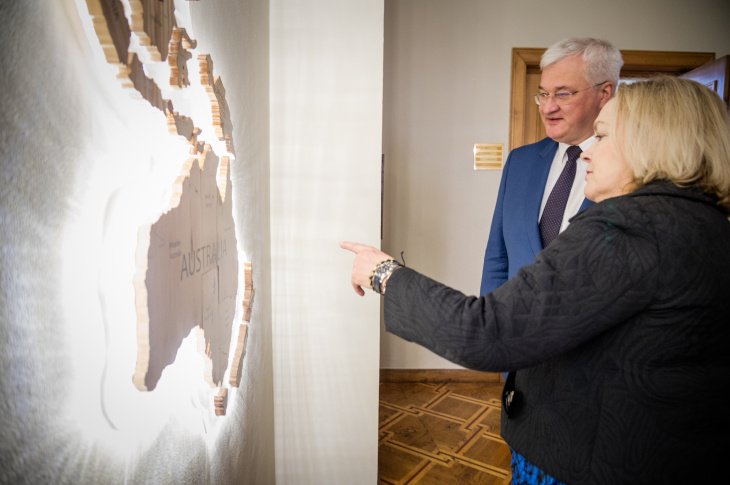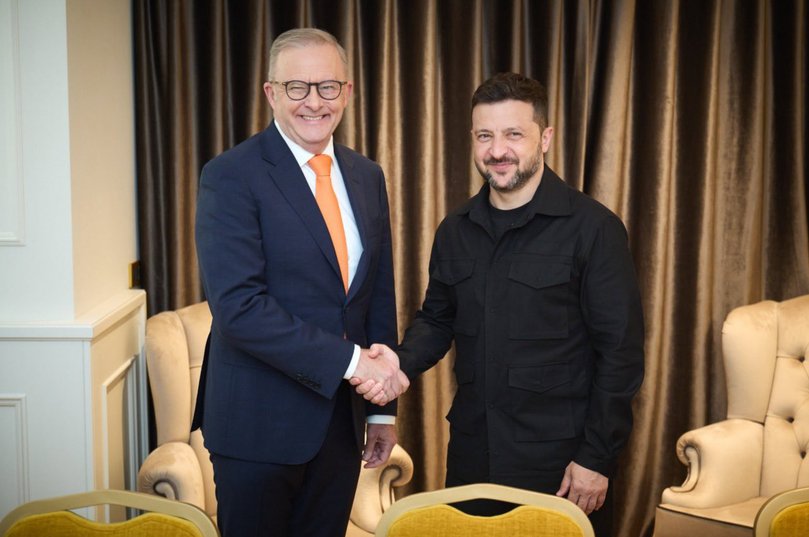Australia and New Zealand join forces to fund NATO weapons for Ukraine
Australia and New Zealand are poised to pour millions of dollars into a special NATO program that buys American-made weapons for Ukraine.

Australia and New Zealand are poised to tip around $65 million into a special NATO program that buys American-made weapons for Ukraine.
Sources in Brussels, Canberra and Wellington confirmed to The Nightly that the two countries would become the first non-NATO nations to contribute to the Prioritised Ukraine Requirements List (PURL) scheme.
While Australia is not a member of NATO, the trans-Atlantic defence alliance, it is part of a grouping called the Indo-Pacific 4 (IP4) whose leaders are regularly invited to attend annual leaders’ meetings.
Sign up to The Nightly's newsletters.
Get the first look at the digital newspaper, curated daily stories and breaking headlines delivered to your inbox.
By continuing you agree to our Terms and Privacy Policy.Both countries are also non-NATO participants of the Coalition of the Willing, the peacekeeping force led by France and the UK, that could be deployed to Ukraine in the event of a ceasefire.
Sources said Australia is expected to contribute around $50 million, and New Zealand is likely to add a further $15 million. The funds could be pooled with those from another country or a mixture of European countries, possibly Canada, Norway, Germany and the Netherlands.
New Zealand’s Defence Minister Judith Collins, who travelled to Kyiv in September, told The Nightly that Kiwis were proud to stand by Ukraine.
“New Zealand stands by our decision to support Ukraine in the defence of its land, people and culture from Russia’s unprovoked and illegal invasion,” the Minister said.
“Having visited Ukraine, I was immensely impressed by the solidarity and stoicism of the Ukrainian people.
“As a member of the IP4, New Zealand’s commitment will continue.”

Australia’s Defence Minister Richard Marles foreshadowed new support for Ukraine in Question Time this week, just before Parliament rose for the year.
“Right now, we must stay the course with Ukraine,” he told the House of Representatives.
“Since the beginning of this conflict, we have provided $1.5 billion of support to Ukraine, and I can announce that very shortly we will be announcing our next package of support for Ukraine.
“What is at stake here is the global rules-based order. There are not many orders; there is one, and it is as relevant to us here in the Indo-Pacific as it is to those who are in Eastern Europe.
“Over the course of the last four years, the people of Ukraine have been absolutely inspirational, and the Albanese Labor government and the Australian people will stand by their side for as long as it takes.”

It has been 12 months since Labor last announced any support for Kyiv.
NATO and the UK have both encouraged Australia to support Ukraine through the PURL fund, as it ensures Kyiv gets the most essential capabilities it needs, such as air defences and missiles which can strike into Russia.
The Nightly has been told that former Defence Force chief, retired General Angus Campbell, who now serves as Australia’s Ambassador to NATO and the European Union in Brussels, strongly backed the program to Mr Marles.
The change from Australia sending Kyiv ad-hoc packages of weaponry that have at times included outdated equipment, to funding PURL constitutes a significant shift.
PURL was created after US President Donald Trump ended US weapons deliveries to Ukraine, which has been fighting Russia’s illegal invasion for nearly four years.
Under the scheme, the United States allows NATO members to purchase American-made weapons that Kyiv identifies as critically needed, on Ukraine’s behalf.
Since the program’s launch, the volume of financial support has exceeded $4.59 billion, from nearly 20 countries.
Bryce Wakefield, CEO of the Australian Institute of International Affairs, said Australia and New Zealand’s contributions were in the interests of everyday Australians.
“When I was in Kyiv, Ukrainians told me they had the will to fight — what they lacked were resources. Australia and New Zealand stepping up helps fill that gap,” Mr Wakefield said.
“Ukraine isn’t just fighting for itself. It’s fighting for the principle that borders can’t be changed by force. That matters to countries like ours.”
He added that it was a rare example of the Indo-Pacific’s partnership with NATO producing meaningful results.
“The IP4 has sometimes struggled to define its purpose and from time to time has looked like a formation created by NATO and projected onto our region. This is a case where IP4 partners and NATO are doing something concrete, and it will make a difference,” he said.
Ukraine’s President Volodymyr Zelensky is locked in delicate negotiations with the Trump Administration after it proposed a peace plan widely believed to have been authored by Russia.
Ukraine, European officials and US Secretary of State Marco Rubio have attempted to walk back some of the most Russian-favourable demands ahead of any final negotiations between the Presidents.
“Right now, our defence of positions, our resistance on the frontline, and our joint work with partners to secure better diplomatic standing are equally important. And everything is aligned toward this work,” President Zelensky said in his evening video address.
“We remain in close contact with the American side and our European friends.
“I am also briefing our partners in other parts of the world, and I am grateful to them for their support of our sovereignty and our state.
“In the meantime, we are doing everything possible to ensure that Ukraine has sufficient defence support.”

